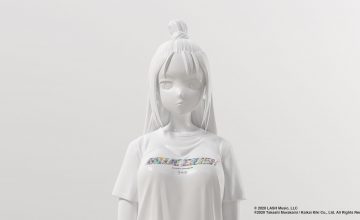The dry season is here once again. Now is the perfect time to visit beach destinations all over the country. Siargao, for one, has appealed to the public for its surf-friendly waves, serene environment, and community. For city dwellers, it’s the perfect place for a relaxing vacation far from work and the internet. And for the social media savvy, it’s Instagrammable.
In a way, the latter plays a huge role in driving tourists to the island. But this Siargao resort doesn’t want to work with so-called influencers.
On March 26, White Banana Beach Resort announced that they have been receiving messages from Instagram influencers regarding collaborations. As if they have gotten exhausted to reply to such requests individually, they publicly announced “that White Banana is not interested to ‘collaborate’ with self-proclaimed ‘influencers.’” That already sounds shady, but that’s not how they drop their mic. “And we would like to suggest to try another way to eat, drink, or sleep for free. Or try to actually work.”
The post quickly gained reactions and comments. As of writing, it has garnered more than 8,000 reactions and more than 2,000 shares. After the post went viral, gaining responses from, well, influencers, White Banana released a statement to clarify that they aren’t against influencers. They are just against freeloaders.
Read also: The toxicity and insensitivity of internet call out culture
“A REAL influencer is called as such by the rest, [they do] not address him/herself as an influencer. They are bloggers. We have actually collaborated with a few of them, in different terms and conditions, and we support them,” the post reads. The management of the beach resort believes that “real influencers” would never contact them for free accommodation in exchange for an Instagram feature. After all, it’s White Banana, the client, that needs their service and promotion. And in that case, the initiative to contact comes from the beach resort.
This phenomenon isn’t entirely new. In 2018, a hotel in Ireland banned social media influencers after receiving a request for five-day accommodation in exchange for exposure. In response to the influencer, the hotel owner Paul Stenson posed the question of remuneration for their staff who would be serving them during those five days. “The sense of entitlement is just too strong in the blogging community,” he wrote on a Facebook post.
The Atlantic also reported that establishments abroad are now quite strict with influencer collaborations. Some hotels, for example, implement a rigorous screening process that includes a look at engagement data and their demographics. Certain establishments won’t totally work with those who have bot followers. As an influencer, your role is to influence real people not bots anyway.
Read also: Let’ stop making Boracay suffer for our own enjoyment
White Banana’s statement, however, raised a good question: Who is the “real influencer?” In the age where access to influencer platforms, which are basically the social media platforms everyone uses, what defines a “real influencer?” Of course, it’s based on following and engagement. How are you going to influence people if your following is only small, right? But are those the only things that make an influencer? More so, what’s the responsibility of an influencer? As digital creative Kim Jones tells Northern Living,“[influencer is] such a capitalist term coined because your job is purely to promote, to manipulate, and even exploit someone’s purchasing decisions.”
And here’s a reminder: Being an “influencer” doesn’t give you a free pass to everything.
Art by Ninotchka Arreola
























Comments